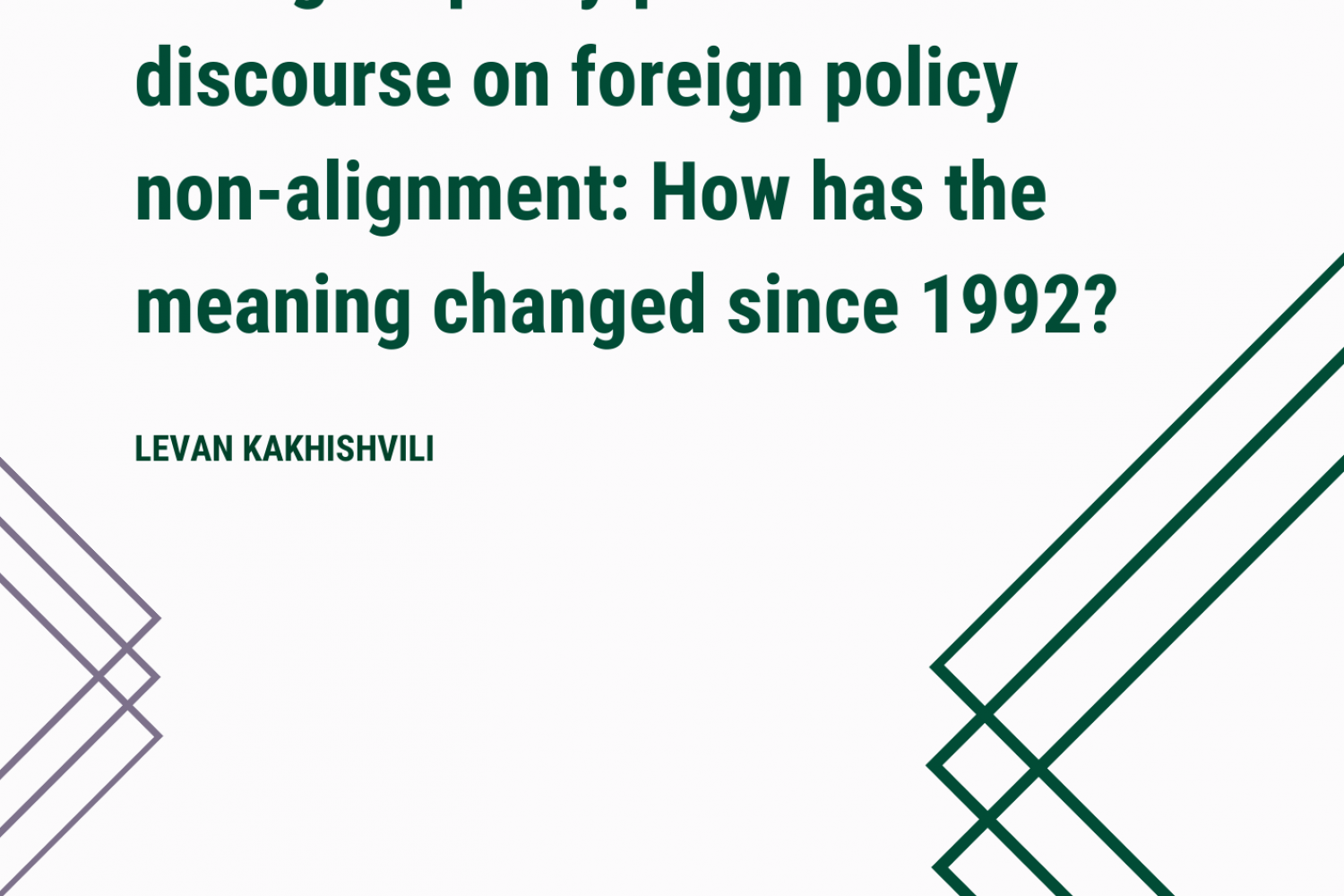2020-10-15 06:36:26
Levan Kakhishvili
Issues related to foreign policy become salient on a regular basis in pre-election contexts in Georgia. Against the background of the upcoming parliamentary elections in October 2020, however, at least three parties have started to advocate for military neutrality or non-alignment as an optimal option for Georgian foreign policy. These parties include Alliance of Patriots of Georgia (APG) (see, Patriots.ge 2020), United Georgia (UG) (see, Liberali 2016), and Free Georgia (FG) (see, Freegeorgia,ge 2020). Out of these three APG is the most vocal about the issue of military neutrality and at the same time, is perhaps the most important party of the three. Although all of them are small parties, APG is the only one that managed to overcome the five percent threshold in the 2016 elections and received six seats in the parliament. It can be argued that it is unimportant what such small parties may say about Georgian foreign policy but on the other hand, they influence the political discourse as they go against the mainstream parties. This changing political discourse in its turn can be seen as a first step in modifying the country’s foreign policy provided these parties become increasingly influential.
The goal of this memo is not to evaluate the feasibility of Georgia’s military neutrality as a foreign policy option (on the viability of neutrality, see, Kakachia, Lebanidze and Dzebisashvili 2020). Rather, it aims to reveal how the idea of neutrality and the meaning behind this seemingly simple concept has changed in Georgian party political discourse over the last three decades. For this purpose, this memo analyzes manifestos of parliamentary parties between 1992 and 2016 (manifestos have been obtained from the Manifesto Project database, see, Volkens et al 2019). Manifestos have been coded and processed using content analysis, which makes it possible to calculate party positions in terms of whether a given political party leans towards alignment or non-alignment and to what extent. The analysis is based on 46 party manifestos spanning seven parliamentary elections illustrating the changing meaning of non-alignment in Georgia party political discourse.



